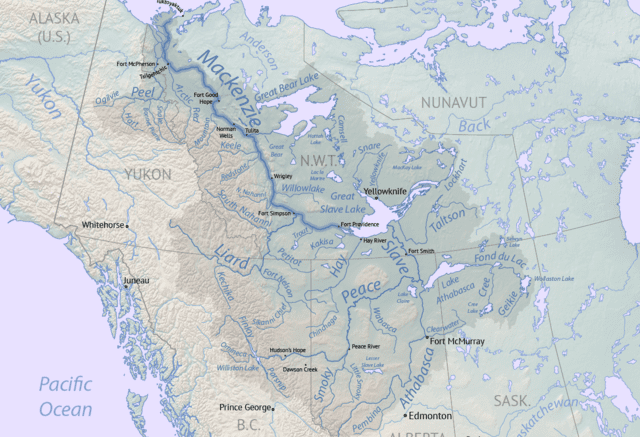Last updated Friday, March 3 at 4:35 p.m.
The Government of the Northwest Territories was not informed about two incidents of industrial wastewater leakage in northern Alberta within the last year that had the potential to impact shared waters.
Minister of Environment and Natural Resources Shane Thompson confirmed in the Legislative Assembly on Thursday that his department was not informed about the two incidents.
According to the Alberta Energy Regulator (AER), there was an “uncontrolled release” of industrial wastewater on Feb. 4, at the Kearl oil sands north of Fort McMurray. This prompted the AER to issue an environmental protection order to Imperial Oil just days later.
This follows an incident in May 2022 at the same site, in which industrial wastewater seeped out of multiple locations on and near the Kearl site.
Alberta and the Northwest Territories have a bilateral water management agreement, under which they are required to inform each other about incidents affecting shared waters.
“It was unfortunate to learn of these incidents second hand,” said Thompson. “ We heard about it from Indigenous governments in the area after a regional municipal government in Alberta reached out to them.”
“This is not the first time that information hasn’t been shared in a timely manner.”
Minister Thompson said there is currently no concern about water quality in the territory, although he said his department would enhance water monitoring in the Slave River in response to the leaks.
“This is unacceptable,” said Thompson. “We need to be informed, and that’s what those transboundary agreements are about. So, again, I apologize to the residents of the Northwest Territories that there was a failure with this system.”
Fort Smith disappointed by lack of communication
The deputy mayor of Fort Smith, Jay MacDonald, said the Town learned about the leaks from Smith’s Landing First Nation on March 2. He said the Town did not receive any communication from any other level of government in Alberta.
“I just want to really emphasize how disappointing it was that we were notified as a third party and we weren’t directly notified, being directly downstream from this release,” said McDonald. “We don’t know how long it would have taken for us to get something because we still have not gotten an official notification.”
MacDonald said the Town is still in discussions with the three local Indigenous governments — Salt River First Nation, Northwest Territory Métis Nation, and Smith’s Landing First Nation — on how to proceed. Tests are still pending for the Town’s water supply.
CKLB has also reached out to Salt River First Nation and Smith’s Landing First Nation for comment.
Alberta First Nation under advisory
South of the border, Athabasca Chipewyan First Nation (ACFN) issued an advisory on Feb. 26 warning residents “not to consume any game, fish or plants harvested after May 2022” from near the site or any downstream waterways.
A spokesperson for ACFN confirmed the advisory is still in place while tests of harvested food are underway.
On March 1, the Municipality of Wood Buffalo notified community leadership it is testing its water supply. “While the current testing and quality control programs do not indicate any contamination at the Fort Chipewyan Water Treatment Plant, out of an abundance of caution, we have temporarily stopped drawing water from Lake Athabasca for the next few weeks,” the advisory reads.
“The tap water continues to be safe to use and with the additional testing being undertaken, we will be aware of any contamination at the water treatment plant.”
Environment and Climate Change Canada investigates
Samantha Bayard, a spokesperson for Environment and Climate Change Canada (ECCC), said ECCC enforcement officers inspected the site and collected samples and information. “ECCC Enforcement expects to continue to attend the site to monitor and respond to the situation,” she said. If officers identify breaches of the Fisheries Act, “they will take appropriate action in accordance with the Compliance and Enforcement Policy.”
The Government of Alberta did not respond to questions from CKLB.





